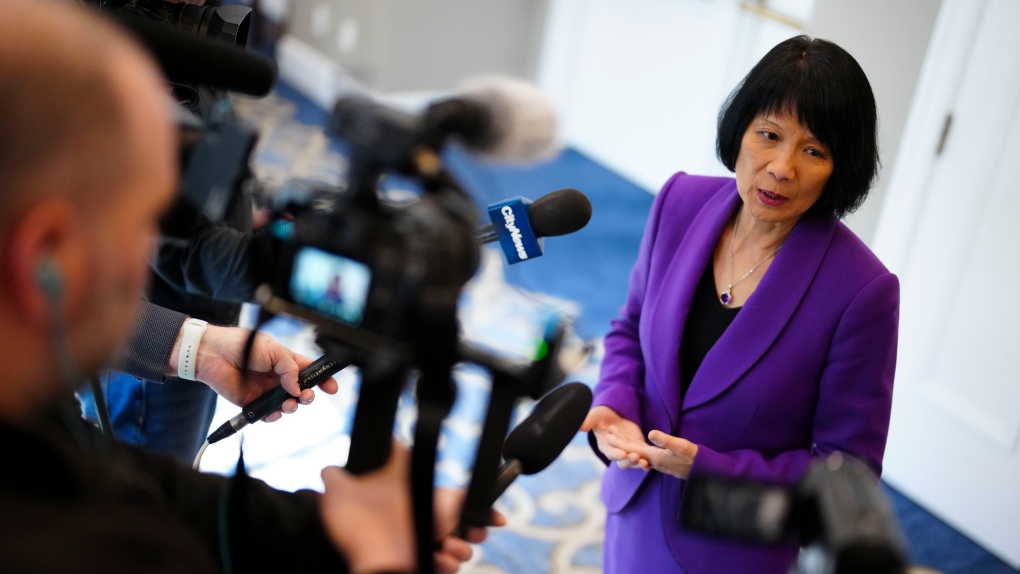Jobs
Nearly two thirds of Toronto residents say Metrolinx not doing a good job; Chow’s support stable for now

A new poll finds that almost two out of three Toronto residents disapprove of the job that Metrolinx is doing.
According to the new Liaison Strategies poll, 60 per cent of Toronto residents disapprove of the job being done by Metrolinx, the provincial agency tasked with building and integrating transit in the Greater Toronto Area.
Among other projects, the agency is responsible for building the troubled Eglinton Crosstown light rail line. The crosstown has seen endless delays, and last fall Metrolinx said it would stop providing target dates for the project’s completion until it could be fairly certain that it could stick to one.
The poll, which was conducted by Liaison Strategies for the National Ethnic Press And Media Council of Canada, found that more than 50 per cent of Torontonians think that the Crosstown won’t be completed before 2026.
Work started on the nearly $13 billion line in 2011 and it was supposed to be complete by 2020.
In an update last month, Metrolinx CEO Phil Verster said that “all of the major construction” is now complete, and that software issues and quality assurance of the work remain the biggest obstacles to overcome before the line can open.
With a salary of just over $838,000 last year, Verster came in at eighth spot on the latest Ontario sunshine list. The NDP have called for his firing over the Crosstown delays, but the government has defended him, saying it is a “complex project” to deliver. His contract was extended in September.
“Out of Service” signs are shown on the Eglinton Crosstown LRT in Toronto on Friday, May 5, 2023. THE CANADIAN PRESS/Frank Gunn
Chow’s support stabilizes
The poll also found that Mayor Olivia Chow’s support appears to have stabilized for now after dropping off precipitously earlier this year.
The poll found that 52 per cent of respondents approve of the job Chow is doing as mayor of Toronto. While that’s down one point from March, the number of people who disapprove of the job she has been doing is also down one point to 39 per cent.
“So, for now, it would appear that her numbers have stabilized,” Liaison Strategies Principal David Valentin said in a release. “That being said, there is the potential for service interruptions at the TTC, and in recent weeks we have seen the city administration struggling with the implementation of the vacancy tax. Challenges remain and being mayor of Toronto is no walk in the park.”
The mayor’s approval rating sat at over 70 per cent for her first few months in office after being sworn in last summer to replace John Tory.
It dipped after council approved a 9.5 per cent tax bump for property owners in February.
More recently residents have also been angered over the disastrous rollout of the vacant home tax program, which saw tens of thousands of erroneous bills go out to homeowners. However, Chow has said the program was fundamentally flawed, and that she inherited a mess which she is cleaning up.
 Toronto Mayor Olivia Chow speaks to reporters in Ottawa on Monday, Feb. 26, 2024. THE CANADIAN PRESS/Sean Kilpatrick
Toronto Mayor Olivia Chow speaks to reporters in Ottawa on Monday, Feb. 26, 2024. THE CANADIAN PRESS/Sean Kilpatrick
She recently came under fire from reporters for giving answers which gave the impression that someone had been fired over the rollout. City staff confirmed to council no one has been let go because of the debacle.
Council voted last week to have staff take another look at the program and come back with revisions.
Valentin noted that Chow’s support remains strongest downtown (58 per cent) and in North York (55 per cent), while she sits at just 38 per cent in Etobicoke and 47 per cent in Scarborough.
“Chow continues to do best in downtown Toronto and fares worst in Etobicoke where her approvals have been underwater for months,” Valentin said. “She does well in North York while it is effectively 50-50 this month in Scarborough.”
The poll was conducted over April 15-16 through a random sample of 861 Toronto residents by interactive voice recording. It has a margin of error of plus or minus 3.34 percentage points, 19 times out of 20.










